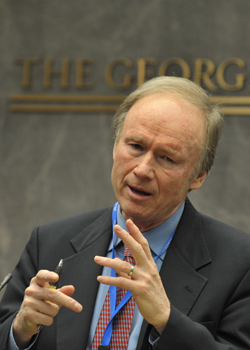I have posted a new article to SSRN co-authored with John Bronsteen and Jonathan Masur. The paper is called Retribution and the Experience of Punishment, and it will be appearing in the California Law Review shortly. It responds to two papers by Dan Markel & Chad Flanders and by David Gray that in turn took up issues we raised in an earlier paper called Happiness and Punishment. Here is the abstract of the new paper:
In a prior article, we argued that punishment theorists need to take into account the counterintuitive findings from hedonic psychology about how offenders typically experience punishment. Punishment generally involves the imposition of negative experience. The reason that greater fines and prison sentences constitute more severe punishments than lesser ones is, in large part, that they are assumed to impose greater negative experience. Hedonic adaptation reduces that difference in negative experience, thereby undermining efforts to achieve proportionality in punishment. Anyone who values punishing more serious crimes more severely than less serious crimes by an appropriate amount — as virtually everyone does — must therefore confront the implications of hedonic adaptation. Moreover, the unadaptable negativity of post-prison life which is caused by the experience of imprisonment results in punishments that go on far longer than is typically assumed. Objectivist retributive theories that fail to incorporate these facts risk creating grossly excessive punishments. Certain retributivists have disputed the claim that adaptation is important to punishment theory, but their arguments are unavailing.
You can download our new paper here. You can download Markel & Flanders’s paper here and Gray’s paper here. Happiness and Punishment is available here. Collect all four.




Leave a Reply